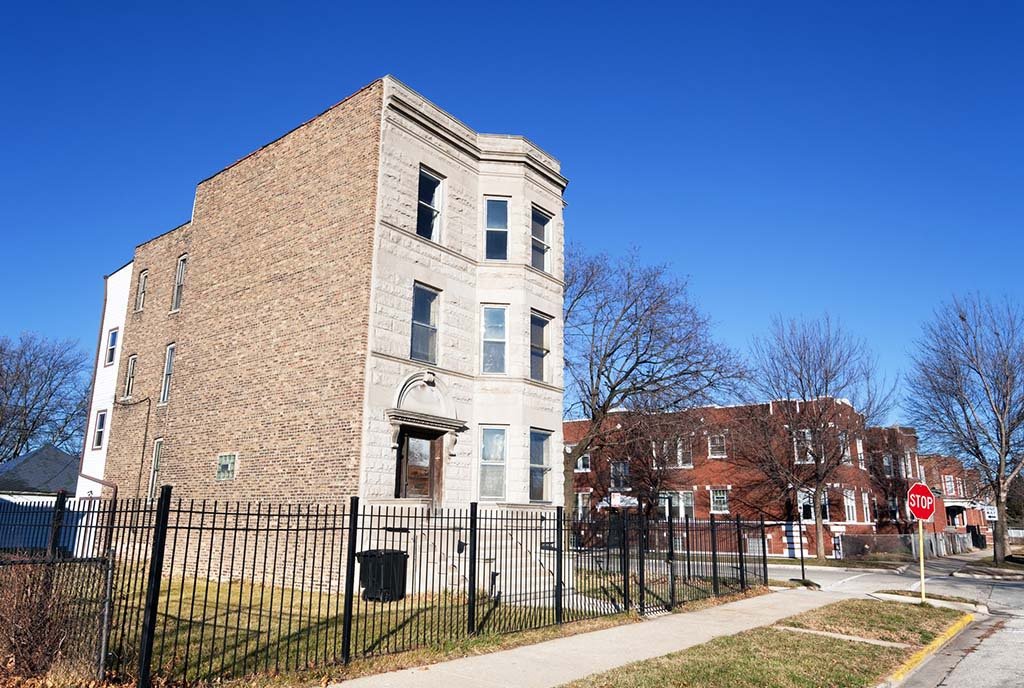
October 29th, 2017; Fast Company and Next City
It was five years ago, but the impact of Hurricane Sandy is still felt in the Big Apple. Nationally, the storm is estimated to have killed 72 people, destroyed 650,000 homes, and generated $71.5 billion in economic damage. In the Rockaways alone, Next City’s Deonna Anderson reports, “Hurricane Sandy destroyed miles of the neighborhood’s beachside boardwalk and impacted more than 2,000 businesses and nonprofits with nearly 15,000 employees in South Queens in 2012.” In the storms’ wake, residents responded. As the New York Times reported two weeks after the storm hit, a group of former Occupy activists dubbed “Occupy Sandy” succeeded in tapping “into an unfulfilled desire among the residents of the city to assist in the recovery.”
Five years later, this spirit of cooperation carries on, albeit in less dramatic form. Two separate but related stories speak to this—the development of a partnership-based community land trust to provide permanently affordable housing citywide, and an effort in the Rockaways that has launched three worker co-ops, with more on the way. Notable too is not just the fact that these forms of community-based economic development are being used, but that they are being employed in novel ways that speak to a broader vision of social and economic transformation.
Take the community land trust. Recently, in NPQ, we profiled community land trusts (CLTs). In particular, we focused on Washington, D.C.’s efforts to create a land trust to keep the planned 11th Street Bridge Park from resulting in runaway resident displacement and gentrification in D.C.’s Anacostia neighborhood. New York City also faces immense obstacles.
As Fast Company’s Eillie Anzilotti explains:
Rent-stabilized apartments are disappearing at an alarming rate; developers aren’t building enough new affordable units, claiming the lower rents will accrue too slowlyto recuperate the costs…In 2014, only 9% of the homes on the market were affordable to the 51% of New Yorkers earning less than $55,000 per year.
A community land trust can help a lot, because it takes land off the market. Once the land is in nonprofit hands, the trust can provide permanently affordablele homes on its lots. This can be achieved even while still enabling homeowners to keep a portion of the equity gain (the exact formula being set forth in the deed of sale). Also, the nonprofit trust helps homeowners on its lands avoid bad financing deals, which is one reason why homeowners on land trust properties have had far lower foreclosure rates than those who have ordinary home mortgages.
What makes the New York City situation unique, however, is not just its recent embrace of community land trusts, but the web of relationships being established with existing nonprofit housing providers. Particularly notable is the Interboro Community Land Trust. Backed by a $1 million grant from Citi Community Development, as well as part of a $1.65 million allocation by the New York City government (three other land trusts are also receiving funds), the nonprofit aims to create 250 units of land trust housing. Of course, you can’t create 250 housing units for under $2 million. What is making this scale possible is collaboration with existing housing nonprofits, including the Center for NYC Neighborhoods, Habitat for Humanity New York City, Mutual Housing Association of NY, and the Urban Homesteading Assistance Board.
Sign up for our free newsletters
Subscribe to NPQ's newsletters to have our top stories delivered directly to your inbox.
By signing up, you agree to our privacy policy and terms of use, and to receive messages from NPQ and our partners.
The participation of these nonprofit partners will enable the CLT to extend across the five boroughs. Even more remarkable is that some have agreed to cede ownership of existing properties to Interboro CLT. Others will provide more typical, but nonetheless valuable support, such as facilitating loans for redeveloped or newly constructed units.
Matt Dunbar of Habitat for Humanity New York City told Fast Company that the timeline and exact amount of necessary funding to start development on the CLT are still being worked out, and the partners are still in the process of integrating their existing programs with Interboro . Another benefit of the partnership structure is it makes it easy for others to join later.
In Rockaway, the worker co-op effort is smaller in scale, but is marked by a similar spirit. A nonprofit community development financial institution (CDFI), The Working World, and Occupy Sandy started Worker-Owned Rockaway Cooperatives (WORCs) in spring 2013.
As Anderson writes, the co-op development effort aims:
to assist people in Far Rockaway and the surrounding area with opening cooperative businesses or converting existing businesses to worker-owned cooperatives. Working World, an NYC-headquartered nonprofit that helps to build worker-cooperative businesses in low-income communities, provided free business development training and ongoing technical assistance, in addition to non-extractive financing.
Part of what makes this effort unique is what Anderson calls “non-extractive” financing. What this means is that rather than a traditional loan, a royalty mechanism is used, by which the business pays more to the lender if the business succeeds but pays nothing if it fails. As Alex Peters from The Working World explains, “repayment only comes from profits, which means we are aligned with the business in seeking success.”
Anderson reports that to date, Rockaway organizers have launched three co-op businesses, and “they also facilitated the conversion of an existing business that was going to close because its owner decided to retire.” Anderson says that The Rockaways co-ops currently employ 13 people, with a new childcare co-op in development. All co-ops in the network have a vote on WORC’s governing board, which makes decisions about which projects to support and how to fund them.
Both Interboro and the Rockaway co-ops are in early days, but the signs are positive. In both cases, a network is, as Peters puts it, coming together, “supporting one another…and providing services that that community needs.”—Steve Dubb













